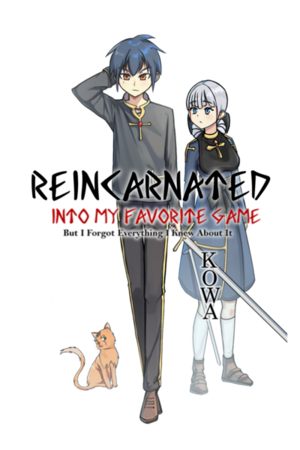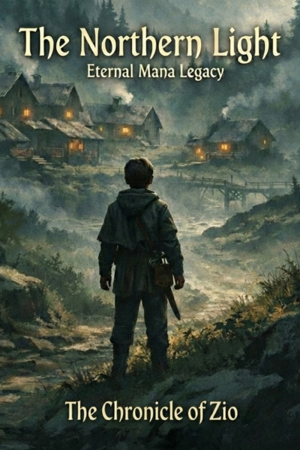Chapter 47:
Seeking advice
Into another world with my velomobile
We ended our dinner in quite a tense atmosphere. Nobody except Lily wanted to openly accuse Elä’Ahrûna of something sinister, but only Reeza was ready to dismiss all charges against the elder daimon. Me and Yára, we were weary and mostly in agreement that there was much more to her story than she had told us, but between Lily and Reeza brewed an almost open hostility.
Under these conditions I had no chance to ask the big question lying on my mind: Should I take the daimon’s offer to let a copy of my spiritual core incarnate back on Earth or not? Our round was just too split in differing opinions and I didn’t want a fight to break out.
Because I already knew what Reeza or Lily would have to say I first went to Yára and asked her in private. Her answer was equally interesting and frustrating at the same time.
“Well, if you don’t feel it from deep within, then don’t do it.” she simply stated.
I stared at her. Did she take me for a fool?
“But that’s exactly my problem.” I answered. “I don’t know how I feel about it. On the one hand there is a deep longing to enable a reunion of this other me with my brother and my master, on the other hand I hesitate to let my innermost core be touched let alone copied (or duplicated, call it what you want!) by anyone or by any means.”
“That is understandable,” Yára answered. “ But if this technique is similar to duplicating thoughts or inner images there is absolutely nothing to worry about. Your soul and inner core will remain completely unchanged.”
Even if I trusted the ælf, that didn’t sound all too convincing to me. Far from it!
“I can never take responsibility for the development of this incarnated duplicate of mine. In some way it feels as if I’d abandon a child of mine!”
She shrugged in an oddly sympathetic way.
“That is indeed something you have to be comfortable with: to have no influence whatsoever over whoever will bare your duplicated soul. The only thing you can do is to make sure - or as sure as possible - that the child will be born into a loving and caring family and would eventually cross paths with your brother and your master. But that is something you have to talk with Elä’Ahrûna through.”
I scratched my head.
“And how could I possibly know that the situation will develop as she says or promises?”
“You can’t.” she answered without hesitation. “That is an issue of trust and belief. And this is really something you have to sort out for yourself.”
Now I was just as smart as before!
“If you were in my place, how would you choose?” I asked in a last attempt to get something helpful out of her.
She just smiled apologetically.
“I really don't know. And I’m glad I don't have to make this decision. As I said: It is mainly a question if you trust her enough.”
“Do you?”
Again a shrug, a shy smile and a slight headshake.
“Sorry, I just don't know…”
Great! Some help she was, our empath! But I did my best to not be frustrated with her. In the end I couldn't demand any kind of advice from her after all the help she’d already given me. Still, I felt a little bit disappointed…
Next I went after Reeza despite knowing her position fairly well. No surprise that she strongly supported Elä’Ahrûna’s proposal!
“This is not only a once in a lifetime opportunity, it’s a once in a millennium opportunity!” she exclaimed in turmoil that nearly bordered on distress.
“And nobody is seeing it! Why?! Just! WHY?!”
She was on the verge of tears and I hurried to offer a few calming words.
“Forgive me for my ignorance, but as you know, I’m not exactly from around here.”
Her golden, unsettling, deep slitted eyes eyed me suspiciously, searching for signs of sarcasm. Fortunately I meant every word exactly as I said and she relaxed a little bit.
“Maybe you have some special kind of connection to Elä’Ahrûna, but I’m curious why you trust her so unconditionally and openly. Even Yára as an empath doesn’t share this sentiment.”
The daimon girl still looked at me, as if searching for something.
“But Yára doesn’t deny that Elä’Ahrûna ascended into goodhood.” she finally answered.
“Well, she considered this to be a high probability.”
Finally Reeza closed her eyes, relaxed and started laughing. Now I looked at her, bewildered.
“What’s so funny?”
“Oh, nothing!” she giggled after finding her voice again. “It’s just, you phrase everything so …polite! Despite you yourself not trusting her. Much less than you are willing to admit!”
Suddenly I was on the defensive.
“I just try to understand your standpoint.” I explained. “Yes, I’m far from trusting Elä’Ahrûna as much as you do, but I’m challenging my own opinion by trying to hear you out.”
“I know, and that’s what I love about you.” she said boldly.
Well, that came unexpectedly! I frowned.
“To me that is just common sense. You can’t learn anything if you just stick to your own opinion and let it constantly be confirmed by yourself. Or by yes-sayers. Then you are stuck in a closed bubble, cutting yourself off more and more from your surroundings. And that is just plain stupid. In my opinion...”
“You see, and that I love even more about you. You are open minded in a way that turns what I see as the biggest weakness of your species into its biggest asset.”
I raised an eyebrow.
“And that is?”
“Your contradictoriness.” she answered, and never have I heard someone form a word with such tender sweetness, rolling every syllable like an exquisite patissery.
My second eyebrow joined the first.
“I’m not sure I understand. How can contradictoriness be ‘the biggest asset’?”
Her demeanor changed back to a more comfortable, serious one, but held its tender emotional quality.
“In more than a way I understand Elä’Ahrûna’s issue with humanity. I’m not very old, just a fledgling, especially compared to someone like her, but I always felt that humans walk a perilously thin line between benevolence and destruction, selfishness and selflessness, genius and madness. They always seem to hold both extremes of the spectrum at the same time, the smarter they are, the more so. Nothing is as complicated as an intelligent human being.”
She fell silent for a moment.
“It’s this contradictoriness that lets them appear like children at times, when the sheer amount of different in-fighting elements are overwhelming them. And nothing is as dangerous as an overwhelmed human being.”
Again she paused.
“But you,” she continued, looking again at me, her golden eyes now soft and tender, “you cope with your contradictoriness in a way I’ve rarely ever seen. You don’t take the easy path to just blindly follow your impulses, you reflect on them, you challenge your opinions, you gain strength from seeming weakness and a firm stand from unstable ground. But now tell me: Why do you distrust an ancient being like Elä’Ahrûna, a goddess who transcended the boundaries of form and matter? To me she appears like an anchor, a myth come to life, a walking legend. What is she to you?”
I rubbed my nose.
“Part of it, you explained yourself. I mistrust easy, or too easy appearing answers or tales. I’ve too often come across two or more different versions of a story, a situation or even a fact. And, pardon me, Elä’Ahrûna’s tale is just one side of the story. And in many cases there simply is no one other anymore to tell it from a different angle.”
“That’s clear.” the daimon girl interrupted me. “I know that too. But there is more to it, isn’t?”
I don’t like being interrupted and frowned.
“What do you mean?”
“I didn’t ask you why you distrust her tale. I asked you why you distrust her!”
Again I rubbed my nose and scratched my head. The answer was not easy for me because I always go after the facts. When the facts don’t add up, I tend to start mistrusting the source. But that’s not what Reeza meant and I knew it.
“Well, I have a problem with her attitude towards so-called ‘lesser beings’, compared to her. She appears to have a know-it-all flair, as if she knew exactly what is good or bad for you, even better than yourself.”
“Why does that bother you?” asked Reeza, puzzled. “She is a goddess. Of course she knows better what’s good for you than yourself. Otherwise you’d be a god as her. Or not?”
“Not exactly. You see, this attitude leads directly to the conviction that the purpose justifies the means. And that is highly problematic, if not flat out unethical. I had my fair share of run-ins with such people. It never ends well.”
She looked at me, pensively.
“Why do you think these same rules apply also to a god, or a goddess?”
“First: we are not dealing directly with a goddess but with a duplicate of Elä’Ahrûna’s former self, an elder or greater daimon, correct?”
She just nodded.
“And second: This principle and its mechanisms apply to all people, regardless of their status, abilities or skills. Less capable beings stumble earlier, more capable ones later. But in the end they all doom themselves anyway.”
Reeza was silent and stared at me for a longer time.
“I’m sorry when I stray into something too personal, but where did you make such a deep and scarring experience to develop such strong conviction?” she asked in the end.
I thought for a moment and searched in my memory.
“That must have been with my parents, especially my mother.” I finally said. “Both had strong, albeit terribly limited perceptions and ideas how I had to behave, what had to be my interests, what I should eat, study, work, in short, how I had to be. And nothing was too shallow and too trashy for them to try to manipulate or even gaslight me into being like their image of me. It was flat out awful!”
I didn’t want to go into details and Reeza didn’t ask for any. She just looked sympathetically and in the end said: “I understand you better now. Much better! Thank you for trusting me with this part of your story. I remember seeing images of your parents and scenes I didn’t understand. By Yurá, that was a real purgatory for you!”
But then she added: “Nevertheless, you have to ask yourself if you do Elä’Ahrûna really justice in comparing her to your parents, people you yourself described as shallow and awfully limited. She lived for more than three thousand years, a true living legend, and even ascended into godhood! They are (or were?) short-lived, stupid, narrow-minded humans. Is that really an adequate comparison? You don’t have to answer me, but please, answer it honestly to yourself!”
And with that I was back to square one and none the wiser!




Please sign in to leave a comment.